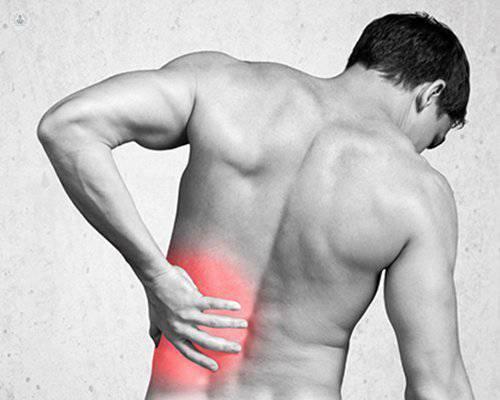
Kidney stones (urolithiasis): causes, symptoms and treatments
Urolithiasis, or kidney stones, is the presence of stones in the urinary tract (kidneys, ureters and bladder), which are capable of causing pain, obstruction, haemorrhage or infection if left untreated.

What causes kidney stones?
Although there are no clear and defining causes of kidney stones, a number of factors can play a role in their development, including:
1. Diet - excess calcium, protein, oxalates, obesity and deficit in fluid intake.
2. Sedentary lifestyle and immobilization.
3. Endocrine disorders – hyperuricemia, gout, hyperthyroidism and hyperparathyroidism.
4. Intake of some supplements and medicines – Vitamin D and C in high doses, calcium antagonists and diuretics.
5. Disease – myelomas, inflammatory bowel diseases – ulcerative colitis and Crohn’s disease.
6. Recurrent urinary tract infection – some bacteria cause lithiasis.
7. Congenital disorders or abnormalities – such as vesicoureteral reflux, urinary tract diverticula, horseshoe kidneys, sponge kidneys, urethral stricture and stenosis of the pyeloureteral junction.
Symptoms of kidney stones
Urolithiasis can occur without producing symptoms on a high percentage of occasions. Sometimes, and as a result of eroding the interior of the urinary tract, kidney stones can cause a darker than usual, and even bloody, urine. Other times kidney stone symptoms may manifest as:
• Back and abdominal pain
• Fever (if there is an infection)
• Dysuria (burning when urinating)
• Nephritic colic (very intense pain radiating from the lower back to abdomen, accompanied by nausea and vomiting.)
Treatment of kidney stones
Treatments for kidney stones vary according to the size of the lithiasis, its location and the age of the patient. As a preventative measure, dietary measures should be considered as a means of prevention of kidney stones, and in some cases kidney stone surgery may be necessary.
1. Dietary measures
Abundant intake of fluids – able to urinate above 2 litres per day. Avoid excessive intake of protein, uric acid and foods rich in oxalate. Avoid excessive intake of sodium – the common salt we add to our meals.
2. Pharmacological treatment
• Potassium citrate, allopurinol to reduce uric acid levels
• Diuretic thiazides which increases the reabsorption of calcium
• Vitamin B6
• Antibiotics
3. Surgical treatment of kidney stones
Minimally invasive treatments for kidney stones are attempted whenever possible, which includes:
• Extracorporeal shock wave lithotripsy – high energy waves are applied to the body surface, directing their energy on the lithiasis. If the lithiasis is large they are not so effective.
• Endoscopic surgery – fragmentation of lithiasis using laser or electro-hydraulic energy in the interior of the body without the need to make any incisions.
• Bladder lithotripsy – inside the bladder
• Ureterorenoscopy – treatment of lithiasis insider the ureter and kidney
• Percutaneous nephrolithotomy – fragmentation and treatment of lithiasis in the kidney by making a minimal puncture wound in the skin of the lumbar area.
• Open surgery – for large stones or associated with anatomical abnormalities that prevent less invasive treatments.

